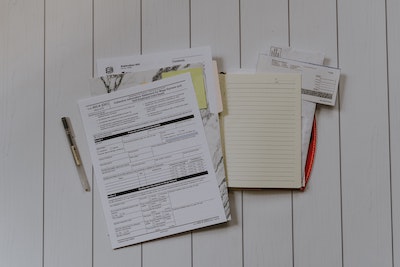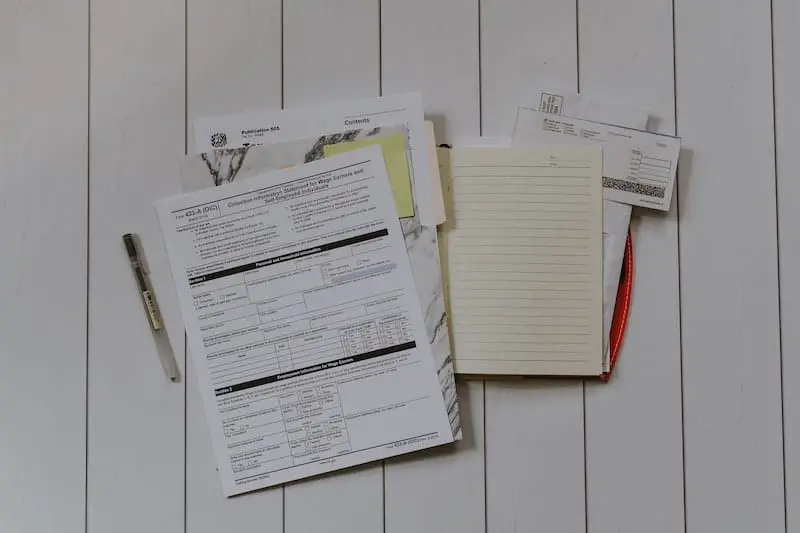What Happens If a CPA Makes a Mistake?
What do you do if your CPA makes a mistake? This is a troubling question that unfortunately many people face each year. The bad news is that even when the tax preparer makes mistakes, you must pay the penalties. If the mistake was caused by the omission of information from your end, you’re on the hook here and you’ll need to work with your tax preparer to make necessary corrections. However, if the mistake was caused by the tax preparer, you would need to notify him about the correspondence you’ve received from the IRS.
So, can you sue your CPA if they make a mistake? Suing your CPA should be your last resort as this would cause you to incur high legal fees. However, if your CPA intentionally, or unintentionally, makes a mistake on your taxes, they can be held liable for their actions. You would file a standard professional malpractice complaint with the state court in your jurisdiction.
Ideally, the tax preparer should rectify the mistake by taking necessary corrective action, including filing an amended return at no extra charge, informing the IRS, and compensating the taxpayer to smooth things over. However, they aren’t required to do so. Check the contract you signed with the tax preparer that states their liabilities.
Can I Sue a CPA or Tax Preparer?
 Suing a tax preparer is often the last resort since the taxpayer would have to incur significant legal fees. However, if the amount in question is substantial, taking the matter to the court may provide relief from undue taxes and fees. Moreover, if the tax preparer is not registered by the IRS or state-licensed, the only recourse is legal action.
Suing a tax preparer is often the last resort since the taxpayer would have to incur significant legal fees. However, if the amount in question is substantial, taking the matter to the court may provide relief from undue taxes and fees. Moreover, if the tax preparer is not registered by the IRS or state-licensed, the only recourse is legal action.
To sue your CPA, you would file a standard professional malpractice complaint with the state court in your jurisdiction. However, to avoid dealing with these problems, it is best to research the candidates. For example, if you’re dealing with complex financial situations, you may need regular tax consultations. The IRS even has a website where you can find a professional CPA with valid credentials who are up to the task.
What To Do When Your Tax Preparer Makes A Mistake
If you hired a tax preparer to complete your return, you expect that the work will be done properly. But sometimes the preparer, either intentionally or unintentionally, may make a mistake on your tax return that the IRS catches. This could result in an audit. It is ordinarily followed by an assessment of additional tax penalties and interest.
After a change in tax laws over a decade ago, anyone who prepares a tax return can be held liable for mistakes made in preparing a return for someone else. A tax preparer who made mistakes in your return could be subject to an IRS monetary penalty. The IRS does take into account the preparer’s testimony regarding the cause of the mistake. Errors deemed reckless carry the biggest penalties.
It’s possible that if the preparer was acting in good faith, financial penalties could be waived. The preparer also may receive a non-financial penalty or sanction. This may include things such as being unable to prepare any returns for a period of time.
What to Do If Your CPA Makes an Intentional Mistake
When there is suspected misconduct, you must take a different approach. You need to complete Form 14157 and submit it to the IRS with all supporting documents. If the error impacts your tax return or refund, you will need to file Form 14157-A.
Reporting a Tax Preparer to the IRS
According to the IRS, some instances in which you can report a tax preparer are:
- Not informing the client before filing an individual Form 1040.
- Making changes in the tax return documents.
- Generating a larger refund by using an incorrect filing status.
- Generating a large refund by creating false exemptions or dependents.
- Creating or omitting income.
- Generating a large refund by creating false expenses, deductions, or credits.
- Misdirecting refunds.
There are times when the mistake doesn’t impact tax returns and/or refunds. You may still report the tax preparer under the following circumstances:
- Improper use of the Preparer Tax Identification Number (PTIN) on a tax return.
- Not providing clients with a copy of their tax return when asked to do so.
- Failing to sign tax returns they prepare and file.
- Holding the client’s records until the preparation fee is paid.
- Using off-the-shelf free tax software for preparing client returns.
- Claiming to be a certified accountant, attorney, enrolled agent, or enrolled actuary.
If you are a tax preparer and you notice another tax return preparer committing any of the practices mentioned above, you can also report them.
It is up to you to convince the IRS of the tax preparer’s negligence. You will need to show a direct relationship between the tax preparer’s mistake and the damages you suffered. The IRS will investigate and if it finds evidence of wrongdoing, the tax preparer’s tax identification number could be rescinded. In addition, you can report the tax preparer to the ethics committee of any professional organization that the tax preparer may belong to. This may include organizations such as the Certified Public Accountants, NATP, American Bar Association.
Who Is a “Tax Return Preparer”?
There are two types of tax return preparers: (1) Those licensed to practice under state law and before the IRS, including but not limited to CPAs, attorneys, enrolled agents, enrolled actuaries, and appraisers. (2) Those who are not licensed (called “unenrolled” tax preparers), who are permitted to prepare returns but are disallowed from practicing before the IRS.
The IRS defines a tax return preparer as “any person who prepares for compensation, or who employs one or more persons to prepare for compensation, any return of tax imposed . . . or any claim of refund.”
Thus, a preparer does not include someone who did a tax return without receiving compensation. However, case law includes within the definition of a preparer one who did other services for the client, even though, strictly speaking, no compensation was received for preparing the return itself.
What Are the Penalties for Mistakes in Tax Returns?
The IRS imposes a penalty on a tax return preparer that understates a taxpayer’s liability. That is determined by whether they made any part of the understatement due to taking an “unreasonable position” that they knew (or reasonably should have known) of the position, or if they made any part of the understatement due to “willful or reckless conduct.”
A penalty of $1,000 or 50% of the income (to be) derived may occur for each error on a return or claim for refund. However, if the preparer had reasonable cause for the understatement, and he acted in good faith, then IRC 6694(a)(3) exempts these penalties. A good tax attorney should be able to inform you whether a preparer had a “reasonable cause” for the understatement.
If the preparer made an understatement with “willful or reckless conduct” he shall pay a penalty on each return (or claim for refund) of $5,000 or 50% of the income derived. What’s “willful or reckless conduct”? It is defined in IRC 6694(b)(2) as any willful attempt in any way to understate a tax liability or a reckless or intentional disregard of the tax law.
In addition to the monetary penalties, there are non-monetary penalties, like an “injunction”. This is basically a court order saying the preparer cannot practice in their professional capacity for a certain period of time. This can be far more devastating than the monetary penalties because they would likely lose many clients.
Moreover, the preparer may be required to re-open every like and non-like return that she prepared for the years falling within the statute of limitations. Finally, a preparer may also lose his license if found liable for tax preparer fraud.
Is a Tax Preparer Liable for Mistakes?
If your tax preparer makes a mistake resulting in you having to pay additional taxes, penalties, or interest, you have to pay these fees — not your tax preparer. Since it is your tax return, it is your responsibility.
An IRS audit can be incredibly stressful, not to mention expensive. Both personal and business tax returns are subject to audit. An IRS audit can also result in penalties that create a great financial strain on your small business, wedding photography business, or other ventures. In these situations, it may be best to consult a lawyer for additional insight into the proper course of action.
When you suspect the tax preparer of misconduct that results in an IRS audit and penalties, you can report them to the IRS for misconduct or sue for damages. The best way to avoid mistakes in your tax return is to work with an experienced Broken Arrow Accountant that provides reliable, efficient, and accurate services.
Tax Preparer Liability FAQ
Can I sue my tax preparer for making a mistake? Yes, provided they have committed negligence or malpractice. California’s comparative negligence jurisdiction, in a lawsuit, the client is usually in the best position to catch an error. Therefore a 100% recovery is rare.
If a tax preparer makes a mistake, who has to pay? Ordinarily, the taxpayer will be responsible for any additional income tax. However, the preparer can potentially be held liable for the additional penalties and interest.
What should you do if your tax preparer makes a mistake? Bring the matter to your preparer’s attention, and quite often an amended return is often warranted to correct the mistake. Most reputable preparers will cover the penalties and interest related to their own mistakes.
You can find more answers to life’s questions here!

